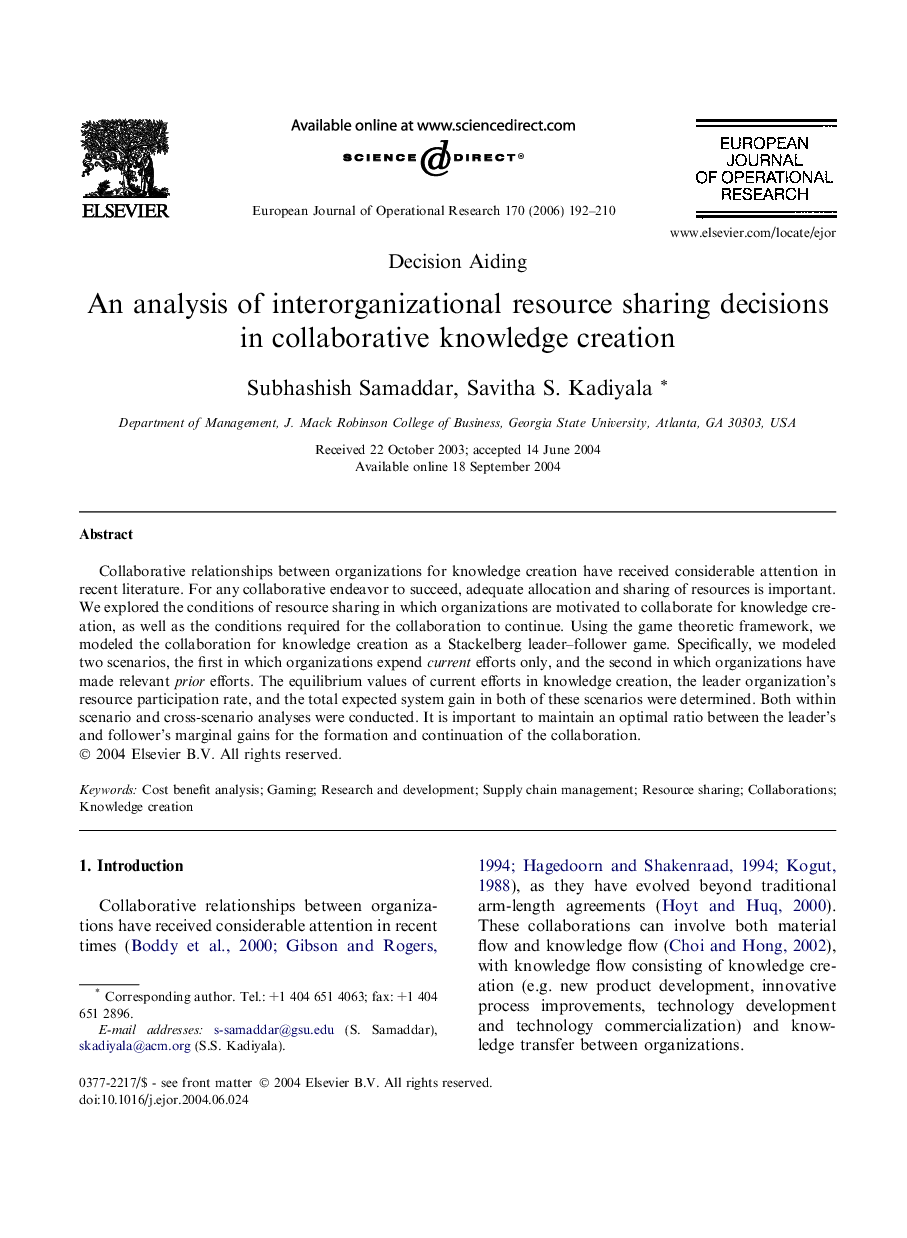| Article ID | Journal | Published Year | Pages | File Type |
|---|---|---|---|---|
| 478026 | European Journal of Operational Research | 2006 | 19 Pages |
Collaborative relationships between organizations for knowledge creation have received considerable attention in recent literature. For any collaborative endeavor to succeed, adequate allocation and sharing of resources is important. We explored the conditions of resource sharing in which organizations are motivated to collaborate for knowledge creation, as well as the conditions required for the collaboration to continue. Using the game theoretic framework, we modeled the collaboration for knowledge creation as a Stackelberg leader–follower game. Specifically, we modeled two scenarios, the first in which organizations expend current efforts only, and the second in which organizations have made relevant prior efforts. The equilibrium values of current efforts in knowledge creation, the leader organization’s resource participation rate, and the total expected system gain in both of these scenarios were determined. Both within scenario and cross-scenario analyses were conducted. It is important to maintain an optimal ratio between the leader’s and follower’s marginal gains for the formation and continuation of the collaboration.
